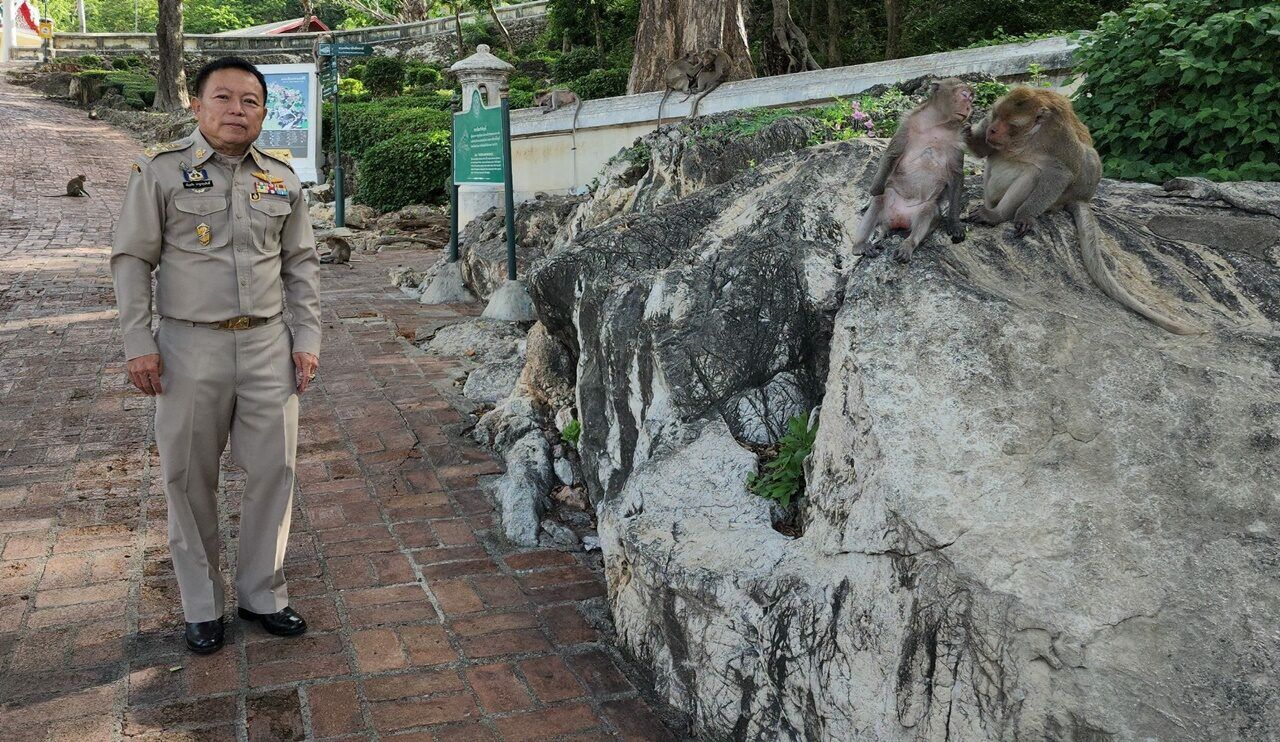Petchaburi struggles with mounting macaque menace impacting locals and tourism

In Thailand’s central-western Petchaburi province, trouble is brewing as locals, tourists, youth, and businesses alike voice their grievances over the nuisance caused by increasing numbers of crab-eating macaques. These primates, which are protected under Thai law as wildlife species, are becoming bothersome as their population expands rapidly. The macaques, which reside mainly in the Khao Wang historical park area in the Mueang district, are causing property damage and potential hazards to the public.
Authorities are aware of the problem, continuously receiving numerous complaints from residents and tourists. The macaques have left their original habitats and are sprawling beyond their usual confines, adopting behaviours causing consistent distress to the local populace. Their foraging habits have led to property damage, with locals fearing the situation could soon escalate into posing a significant safety issue.
Provincial Governor Nattachai Nsampoonsuksan disclosed that the legal status of the macaques as protected wildlife makes it difficult to control their spread. Efforts to manage the problem face legal hurdles, leaving the situation almost at a standstill.
Previously, the province set up a task force to address the monkey menace. The behaviour exhibited by the monkeys often matches that of human delinquents. They engage in fights, theft, and vandalism, causing physical harm to humans when threatened. The general public has resorted to installing durable wire mesh around windows and doors to keep the macaques out, with concern for the safety of children and teens, especially those attending nearby schools, reported KhaoSod.
In Petchaburi, the macaque population is estimated to be between 1,000 to 1,500. The numbers showed over 3,000 macaques in areas like Khao Wang Park and Khao Luang Cave. Data collected in April this year indicated an approximate total of 9,500 macaques. However, a survey conducted on June 30 reported an increase of up to 12,000, with recent estimates breaching the 20,000 mark, further exasperating the residents and negatively impacting tourism.
Past measures taken by the Department of National Parks, Wildlife and Plant Conservation and Conservation Area Administration Office 3 to control the macaque population through sterilisation were unsuccessful in resolving the problem permanently.
The task force believes that urgent measures are needed, urging the Ministry of Natural Resources and Environment to reconsider the wildlife protection status of the macaques. They argue that the macaques now dwell in community areas, suggesting they should no longer be classified as wildlife and need to be removed from protected status. The rapidly increasing population indicates no fear of extinction that necessitates protection.
The proliferation of the macaques has become challenging to manage. They cause property damage and pose an increasing risk. Removing them from protected wildlife status will allow relevant officials to take appropriate action efficiently. At the same time, there is no fear of these macaques being subjected to cruelty as they are still under the law protecting animals from cruelty.
The province has written an official proposal to the Ministry of Natural Resources and Environment, seeking to repeal the protected status of the macaques under the Wildlife Conservation Act. The process is currently underway.
Latest Thailand News
Follow The Thaiger on Google News:


























